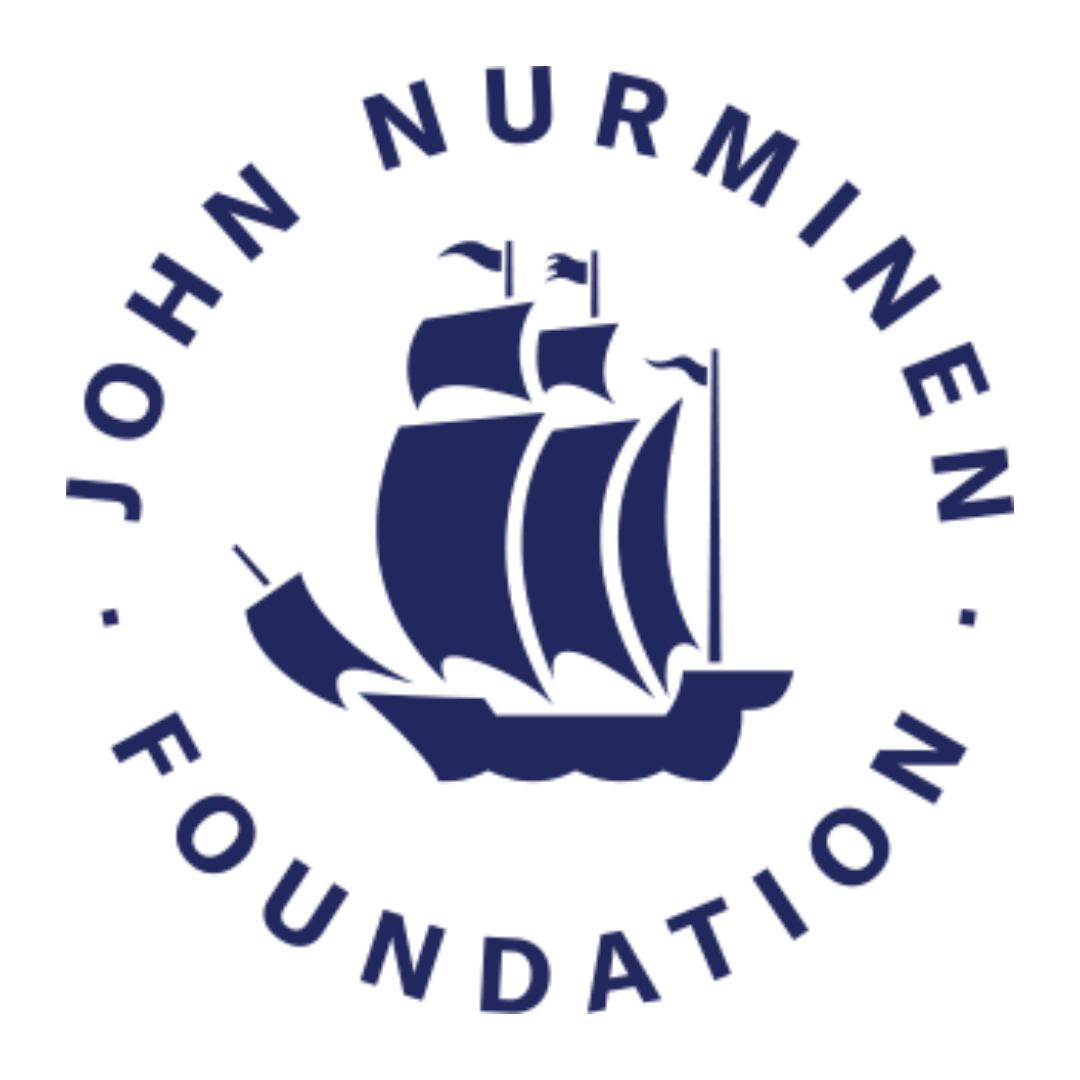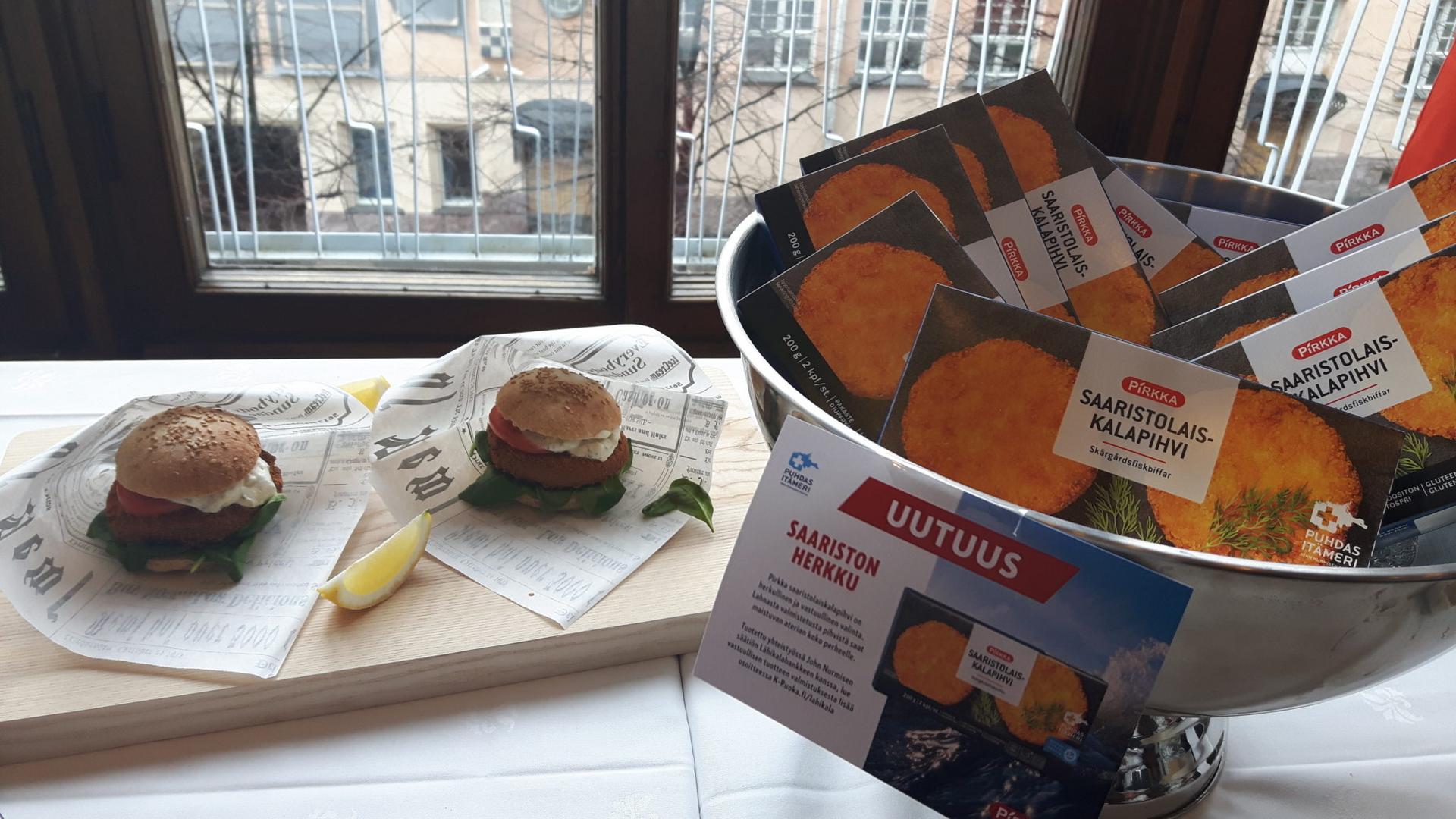In an award ceremony organized at the Messukeskus Expo and Convention Centre in Helsinki on the 4th of November, K-Ruoka Awards presented awards to actors and products within food industry in seven categories. Kesko’s product Pirkka Saaristolaiskalapihvi (Archipelago fish patty), which propelled its way into the frozen food sections of Finnish grocery stores in April, competed in the category “Vuoden vastuullisuusteko” (“Accountability Action of the Year”). Made of bream caught within the foundation’s Local Fishing Project, the Archipelago fish patty was launched in April this year. Within a short period of time, it has emerged as one of the most popular frozen fish products at the K-Ruoka grocery stores.
Atria’s new environment- and user-friendly minced meat packaging solution, which was in the lead throughout the entire competition, got 62% of the votes and was this year’s clear winner. The Archipelago fish patty got a good one-fourth of the votes. Although this time it was not enough to win, Miina Mäki from the John Nurminen Foundation’s Local Fishing Project is content: “Being among the finalists—among the best three— feels like a victory. We have received a great deal of positive feedback for the Archipelago fish patty and we are expecting a new cyprinid fish product to be launched soon, so we firmly believe that cyprinid fish will have plenty of opportunities to go for gold in the future.”
Forty years back, bream from the Baltic Sea was still a well-known and popular ingredient among consumers, but at present it can barely be found in grocery stores.
”Despite the deliciousness and health benefits of the bream, consumers do not associate it with food fish. That is why we are very excited about the opportunity to cooperate with Kesko in order to make the bream useful and bring it back to the table. Sustainable fishing is also a great way to take care of the Baltic Sea. Over the years, the Archipelago Sea has become affected by eutrophication due to, for example, runoff bringing excessive loads of nutrients, which, in turn, increases algal bloom. Cyprinid fish have benefited from eutrophication and their populations have increased in coastal waters. On some locations, their movement may also cause nutrients to be released from the sea bed and thus add to eutrophication. Thus, fishing for bream and other cyprinid fish has a positive environmental impact. Also, elevated levels of pollutants have not been found in cyprinid fish, so there are no limits to their safe consumption.”
Thus, eating fish caught from the Baltic Sea is a pro-environmental action: it reduces the Baltic Sea Footprint of individual consumers. The Local Fishing Project also subscribes to the principles of sustainable fishing.
”The purpose of our Local Fishing Project is fish removal targeted at reducing bream and roach populations. The fish is caught using fyke nets, which allows for safe release of any predatory fish, migratory fish and endangered fish species. In addition to efforts to protect the Baltic Sea, an additional objective is to bring ethically and ecologically sound local food products to the market and to offer consumers a new, delicious option to enjoy”, says Miina Mäki.
The Local Fishing Project: 150,000 kg of Cyprinid Fish Caught in 2017 – Fishers Wanted in Early 2018
The Local Fishing Project was launched in 2015, which means that we are now well into the third year of the project. The record-low temperatures in spring and summer of 2017 also influenced the amount of cyprinid fish caught. Usually the bream season starts at the latest in mid-May as the waters become warmer, but this year the season began properly only in mid-June. Coastal waters also remained cool throughout the summer.
Despite the challenging weather conditions, a total of 150,000 kg of bream and roach was lifted from the sea – and with it 1,2 tons of phosphorus. Some of the 15 fishers participating in the project will continue working in the autumn because there is increasing demand for roach and bream. In January to February 2018, the John Nurminen Foundation will again look for new fishers to cooperate in the project.
Did You Know? You Can Reduce Your Baltic Sea Footprint by Eating Pirkka Archipelago Fish Patties. Check Out the Baltic Sea Calculator to Find Out More!
A passionate fisher and friend of the sea, Senior Research Scientist at the Finnish Environment Institute (SYKE) Seppo Knuuttila has been researching the state of the Baltic Sea for decades. Knuuttila also worked in the research project of SYKE and Natural Resources Institute Finland (LUKE), the result of which was a nutrient footprint calculator for the Finnish context with which consumers can calculate their personal Baltic Sea Footprint.
The calculator indicates that, in Finland, food production is the single most stressful factor to the Baltic Sea. The more field surface area needed for food production, the greater the Baltic Sea Footprint of the food in question. For this reason, the greatest environmental stress to the Baltic Sea comes, for example, from beef consumption, whereas eating wild fish from sustainable fishing reduces the Baltic Sea Footprint.
Researchers recommend replacing meat dishes with vegetables and fish whenever possible. Knuuttila once started by eating vegetarian food once per week. These days he has only one meat day per week and eats plenty of fish from the Baltic Sea. Knuuttila praises Pirkka Archipelago Fish Patty for being a true pro-environment action.
”By replacing a meat dish with a Pirkka Archipelago Fish Patty, you instantly reduce your Baltic Sea Footprint! It is possible to calculate how your diet influences the state of the Baltic Sea. As a person living in Helsinki, my personal load of phosphorus via wastewater to the Baltic Sea is about 30 g per year*. One Pirkka package contains two fish patties with 140 g bream and 70% fish in each patty. If you consume one such package per week for one year, you would eat 7,28 kg of bream. This amount means reduction of phosphorus from the sea by about 51 grams. If you live in Helsinki, of this amount about 1,5 grams will return to the water cycle via wastewater, which means that the net removal is 49,5 grams,” Knuuttila concludes.
Further information:
Miina Mäki
Project Manager, Local fishing project & Project BEST
+358 (0)50 576 3298
miina.maki(at)jnfoundation.fi
Read more about the Local Fishing Project in Miina Mäki’s blog
Get to know the Pirkka Archipelago fish patty and find out more about the Local Fishing Project
Piloting in an EU-funded NutriTrade project
The Local Fishing Project is one of the pilot projects implemented within the NutriTrade project (NutriTrade – Piloting a Nutrient Trading Scheme in the Central Baltic), co-financed by the EU Interreg Central Baltic programme (2015–2018). The objective of the NutriTrade project is to establish a system for provision and financing of voluntary nutrient reduction measures in the Baltic Sea Region. Led by the John Nurminen Foundation, NutriTrade is a flagship project of the EU Baltic Sea Region Strategy. www.nutritradebaltic.eu
* In other parts of Finland, the load is somewhat greater on average, depending on the efficiency of sewage treatment plants—however, rarely over 50 grams.
The mission of the John Nurminen Foundation, established in 1992, is to save the Baltic Sea and its heritage for future generations. The objective of the Clean Baltic Sea projects is to improve the status of the Baltic Sea with concrete measures that reduce the nutrient load and environmental risks faced by the sea. The Clean Baltic Sea projects are financed with private donations and public funding. The Foundation’s publication and exhibition activities focus on the history of seafaring, exploration and cartography, and making them better known to the general public. The activities are supported by the Foundation’s extensive collections of naval art, maritime antiquities, and ancient maps. The Foundation publishes non-fiction books on related topics, and maintains the Loki online service, which is free for all.
www.johnnurmisensaatio.fi/en


